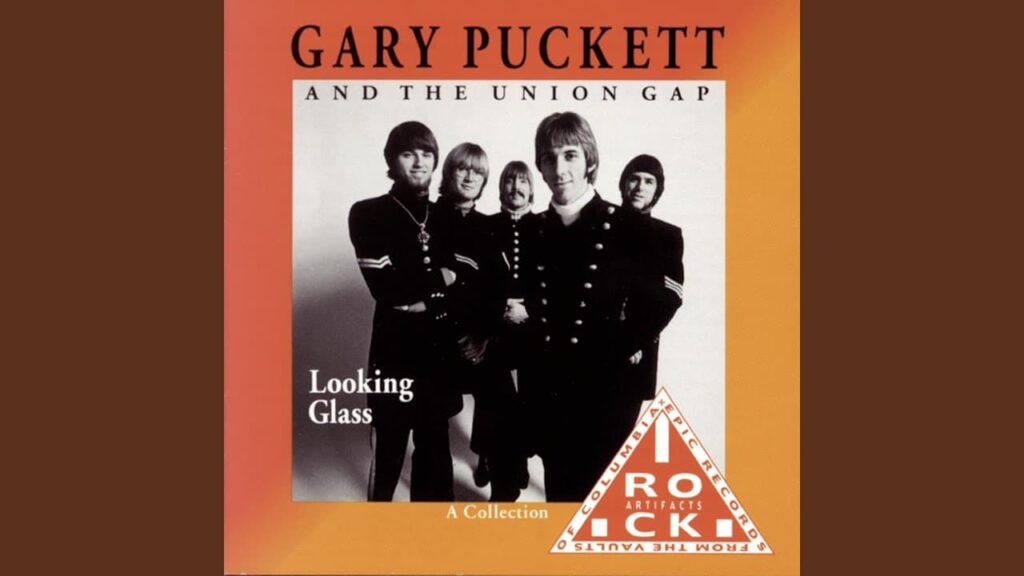
A Brotherly Warning: Don’t Succumb to a Deceptive Love That Promises Pain and Regret
Gary Puckett & The Union Gap‘s “Don’t Give In To Him” resonated with a cautionary tenderness, reaching a respectable number 15 on the Billboard Hot 100 chart in late 1969. This track, arriving after a string of massive hits like “Young Girl” and “Lady Willpower,” showcased a slightly different facet of the band’s appeal. While still featuring Gary Puckett‘s signature smooth, soaring vocals and the Union Gap’s distinctive orchestral-pop sound, it presented a more serious, almost paternalistic narrative. It became a beloved, if more understated, entry in their celebrated discography, speaking to the universal anxieties of protecting loved ones from potential heartbreak, a sentiment that struck a chord with listeners of all ages.
The story behind “Don’t Give In To Him” is quite interesting, especially given its distinctive lyrical perspective. The song was written by Gary Puckett himself, which lends an even deeper layer of authenticity to its earnest warning. Instead of being a typical romantic ballad from a suitor to a beloved, the narrative voice is that of an older brother figure, or a very close friend, advising a young woman against falling for a man he perceives as a heartbreaker. This unique angle sets it apart, focusing on protective love rather than romantic pursuit. It’s a candid, almost pleading appeal, born from a place of genuine concern for someone’s well-being. For those of us who remember the late 60s, this kind of sincere, almost paternalistic advice, often found in popular songs, resonated deeply in a time when social changes were rapid and many felt the need for grounded guidance.
The meaning of “Don’t Give In To Him” is a clear and direct cautionary tale about the dangers of succumbing to a charming but ultimately insincere lover. It’s a song about recognizing manipulative behavior and having the strength to resist it, even when one’s emotions are strong. The lyrics vividly paint a picture of a man who sweet-talks and promises the world but has no intention of delivering on those promises, ultimately leaving a trail of broken hearts. Lines like “He will use you and abuse you / And then he’ll turn and run” are stark and uncompromising, highlighting the potential pain and disillusionment. The song implores the listener to see through the superficial allure and protect their emotional vulnerability, choosing self-respect over fleeting affection. It speaks to the wisdom gained from experience, often from seeing others get hurt, and the strong desire to shield someone else from that same pain.
Gary Puckett‘s vocal performance on “Don’t Give In To Him” is perfectly suited to the song’s serious tone. His voice, usually known for its romantic yearning, takes on a more urgent, almost pleading quality here, conveying the depth of his concern. The Union Gap’s orchestral pop arrangement, with its lush strings and prominent brass, provides a dramatic backdrop for the narrative, emphasizing the gravity of the warning. The instrumental breaks are precise and evocative, creating a sense of unfolding drama. Released on their album “The New Gary Puckett and The Union Gap Album”, this song showcased the band’s ability to tackle more complex lyrical themes while maintaining their distinctive melodic sound that had made them household names. It was a testament to their versatility beyond the pure love songs they were primarily known for.
Listening to “Don’t Give In To Him” today evokes a particular kind of nostalgia for a time when pop songs could deliver profound, almost moralistic messages wrapped in beautiful melodies. It reminds us of a simpler era when concerns about young love and its potential pitfalls were often expressed so directly in popular music. Gary Puckett & The Union Gap‘s rendition remains a powerful, heartfelt warning, a timeless piece of advice that continues to resonate with its message of protecting one’s heart from insincere affections. For those of us who recall its presence on the airwaves, it still feels like a trusted voice of reason, a musical friend offering guidance, urging us to be wary and to cherish our emotional well-being above all else.